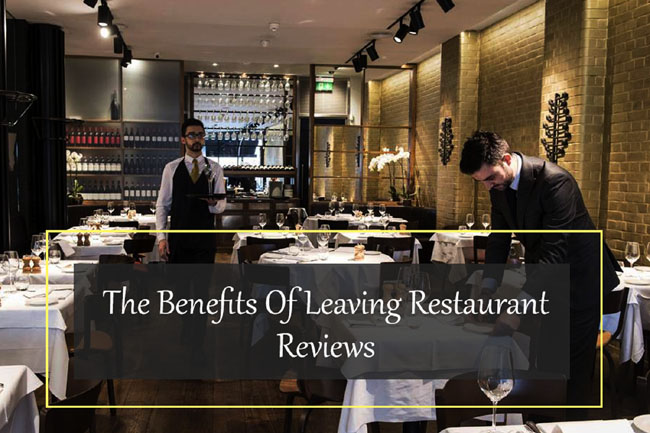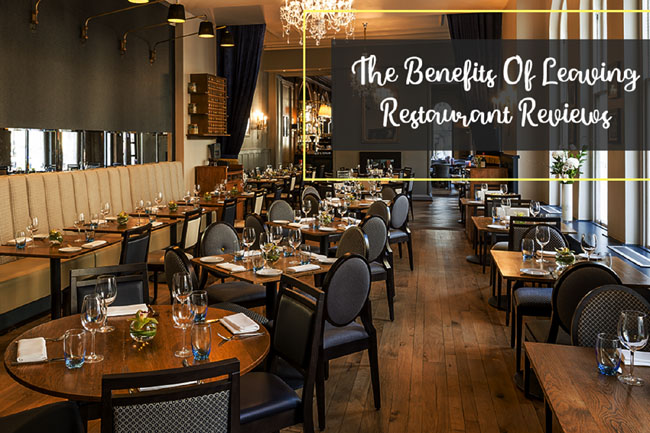
One cannot deny the importance of criticism received after the implementation of a task. There are different kinds of criticism, the most fundamental types being:
- Constructive criticism
- Destructive criticism
The difference between the two is simple: one strengthens the work, the other undermines it. It is mostly based on how a review is crafted, and how it is taken.
If you’re running a restaurant, you definitely need reviews for a number of reasons. This article will talk about the benefits of reviews, and how they can help a business grow. But before we talk about the benefits, let’s delve into the aforementioned types of criticism, and why they’re important.

Constructive criticism
Constructive criticism is the type of criticism made with concern and care. Its main objective is not to insult the subject, but to help the subject learn from their mistakes. Pointing out the mistakes helps a business find the drawbacks they have in their methods or products. Knowing these facts ultimately helps them grow. Constructive criticism does not necessarily have a specific tone, but it does have a result: positivity and encouragement.
Destructive criticism
Destructive criticism, on the other hand, involves a certain temperament, attitude, and objective. It is not made out of care or concern; its main purpose is to diss the subject. In some cases, it has no purpose at all, other than to express anger or inconvenience. Destructive criticism also often has a condescending tone. Often times, it ends up making a whole business shut down for its high vitriolic tone.
It is never easy to draw a line of distinction between the two types, as there are times when the results are reversed in the process. This is why it matters how a statement or review is interpreted. Sometimes a really harsh comment can make a business grow because the receiver took it really well. Or sometimes a constructive remark is taken so well that a person doesn’t feel the need to make any improvements in their work. As much as it is dependent on the reviewer, it is also dependent on the reviewee. What all matters is the result achieved at the end.
Here are a few benefits of leaving reviews for the restaurants you eat at!

Better Performance
One of the best things about leaving a review for a restaurant is giving a business more room to grow. When you have a culinary experience so good that it makes you want to have more, what you can do is compliment the service and recommend that more people go to it. This would help the restaurant grow with more customers. You can also reach out to the chef and compliment them directly. This would help them have more confidence in their job, and also would help them love their job. Being happier at work usually means better performance. A word of encouragement goes a long way.
Another thing you can try is pointing out a problem you noticed. If you do it politely and with humility, the criticism will usually be handled well. There are times when a service is great, but there are some faults that you feel need to be addressed. It is advisable that you help the manager to locate those problems before they grow to be out of control.
Reviews Help to Publicize a Restaurant
If the restaurant was great, you can definitely find their social media profiles, where they may have polls and a review submission format. Once you like them on Facebook, your friends list will see that, which indirectly helps to promote the business.
Reviewing on social media also helps to give random people a general idea of the restaurant. It helps them decide beforehand if they want to experience a new place or go to the tried ones. Of course to do this, one needs an internet connection so that they can have access to the online pages of these restaurants. U-verse internet plans are helpful in this regard, as they are cheap and affordable. One can collect reviews of the restaurants from TV as well, via advertisements. If you opt for U-verse internet, you can should also consider bundling it with u-verse tv. That way you may cut a bit cost of the services.
More Clients, More Revenue
Whether you review a restaurant at the place or you review it online, you help the restaurant grow by improving their services. As mentioned before, once a customer rates a restaurant on social media, the word floats around, helping a restaurant reach audiences they haven’t reached before in the process. Needless to say, more customers means more revenue. The restaurant business is indeed a tricky business that greatly depends on the reviews of customers. In a weird manner, consumers have great power to either lead the restaurant to the path of success or to shut it down entirely.
Reviews hold an incredible amount of power, especially destructive ones. For example, let’s say that there’s someone who is not accustomed to Indian food, at least not as much as an actual Indian. That customer could be hostile, and leave a bad review based on the limitations of their taste buds. In this situation, the review would be destructive. The Indian restaurant might end up compromising on the Indian taste to the extent that it becomes digestible for the American audience. This puts the minority audience in a shade. The Indian customers who would come to enjoy the Indian food would then be disappointed by the service. Hence, another bad review.
In situations like this, a restaurant could try to manage a compromise where both types of customers would be satisfied. The best way to do it is by not taking the reviews too personally. The customers provide a layman’s opinion, not a connoisseur’s. A connoisseur should be the judge of the service, but in such services, when most of the customer base are laymen, one cannot overlook their reviews at the same time.
One thing is for sure: every kind of review helps. It is mostly about the interpreter/reviewer of the comment who decides how to get influenced by a remark. While the customer has the power, they can’t exercise it as long as you give them the permission.
Author Bio:
Steve Hopely, a tech savvy blogger, likes to read tech blogs and watch movies. Born in Omaha, Nebraska. On the Weekends, he plays tennis with his friends. Professionally, he is a tech geek who spends his entire week writing about latest technology.
Twitter: https://twitter.com/stevehopley85




